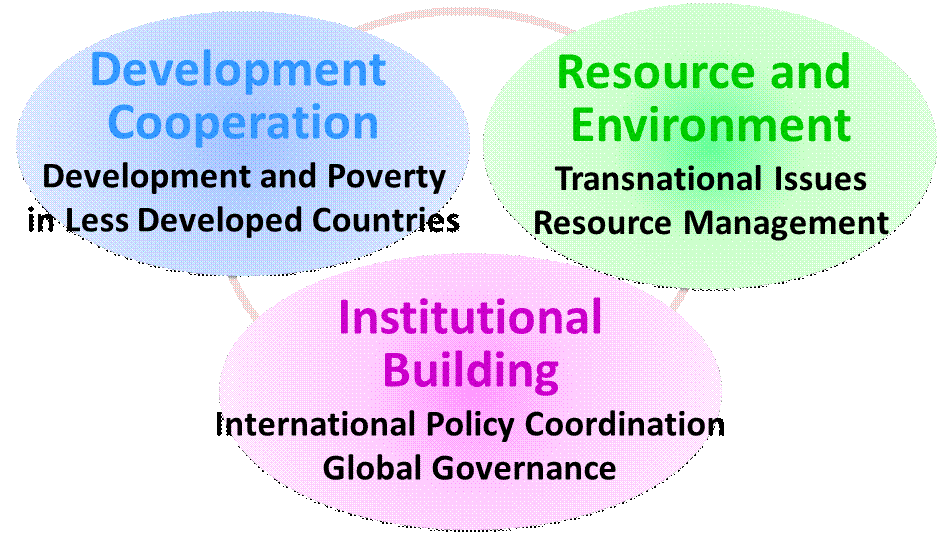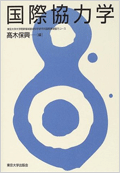Overview
What are we doing?
A unique feature of the Department of International Studies is its trans-disciplinary approach to the critical global issues in international cooperation, such as development and poverty alleviation in less developed countries, institutional building, international policy coordination, environmental deterioration, and natural resource management.
The research and educational fields of the Department of International Studies can be divided into three categories: Development Cooperation; Environment and Resources; and Institutional Building. The three categories respectively deal with issues on development and poverty in less developed countries, global environment and resource management, and international policy coordination and global governance.
To analyze and solve those issues, we need to employ a trans-disciplinary approach in which existing academic disciplines are effectively combined to generate innovative ideas, rather than sticking with an individual discipline. In addition, tackling those issues requires not only theoretical consideration but also application of the theory to the real world based on careful observations in the field.
Therefore, our faculty members have diverse academic backgrounds, such as agricultural science, economics, engineering, political science, and sociology, and engage in trans-disciplinary research based on field works, providing policy and management suggestions to governments, development organizations, and private firms.
In our curriculum, each of the three categories has courses in both natural and social sciences which cover both theory and application. In addition to lectures by academic researchers, we provide lectures by practitioners in development such as those from Japan International Cooperation Agency (JICA), development consulting firms, and NGOs and provide credits to internship. We also have seminars on international cooperation and development regularly, inviting development practitioners for presentation and discussion. Beside, our students organize seminar series for their research and publish working paper series on the web.
Our Master and Doctor Courses can be completed in English, and the admission of foreign students is generally based on application materials and does not require taking exams in Japan.






